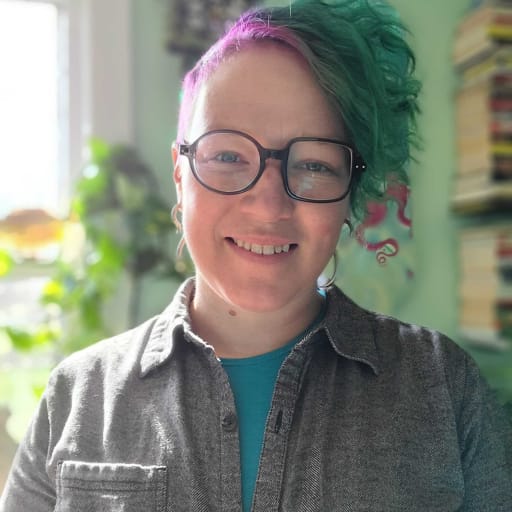What to cover in your cover letter
Writer’s block hitting hard at the worst possible time? The devil is in the details (and the job description).
I have been paid to write, in one capacity or another, for close to 15 years. And in all that time, no single style of writing has vexed me more than the dreaded Cover Letter™. I could come up with 19 different ways to sell you a cheap kids’ bike or write a blog post about what you need to work from a campsite, but ask me to talk about myself in a way that feels authentic and like there’s no other person for the job I want you to hire me to do? NO THANK YOU.


So if I have a hard time with it, I can only imagine the struggle non-writers have. Let’s go ahead and set you on the right path to spin up something great each and every time.
Does anyone read these?
Ahhhh, a question for the ages. When applying for writing-adjacent jobs, I’ve always assumed that yes, someone is reading them. Then again, my best friend is a copywriter and said she never read the cover letters prospective employees sent her, so maybe I was just psyching myself out the whole time? I reached out to one of our Technical Talent Advocates, Francois, for his take, since we have a short 3-5 sentence section on every job application that serves as the cover letter:
“We review every single application and we read all the cover letters. Do not copy-paste the same letter for every job you apply to, this is a red flag for us that you do not spend the time to tell us why we should consider you.”
While we do have the unique advantage of seeing every cover letter you’re submitting and, as such, can tell when you’re (figuratively) mailing it in, I think this is good advice for ALL cover letters. Always assume someone is going to read it. And make sure to proofread your work carefully, because nothing sucks as bad as losing out on a job over a misspelled word.
What should I say in my cover letter?
Francois also has some sage advice for you when it comes to how you talk about yourself:
“Why are you a good fit for this job? We already know what technologies you use and what you specialize in, so tell us about some specific experiences that are related to what the client is doing, and what specifically interests you in that job description.”
Your application to any job is going to include a resume, which means prospective employers can see exactly what technologies you’ve been working with. They don’t need to see you reiterate that yes, you know those technologies. Dig in deeper and share how you used that technology to achieve a goal similar to the one the client is hiring for. What is it about this company in particular that is really exciting to you and would keep you interested in the work?
Show that you’re not just copy-pasting their name into the letter, you’ve actually taken the time to do a little background research into the company, the team, and the job itself.
“Assuming that most candidates applying to the job have the same skill set, what differentiates you from the others?”
There’s a job advertised for a NodeJS developer, and it’s right up your alley. But guess what? It’s also right up the alley of the 16 other devs who applied, so you need to set yourself apart. What makes you a better candidate than the gal next door? Writing this is usually the part that feels the hardest, because it’s the part where you have to talk about yourself and really sell your skills.

A trick I like to use is pretending I’m writing a cover letter for a friend. I have no problem being someone else’s hype man! It’s so easy to see the work your friends do and find the finer points that make them a shoe-in for a job they want. Do the same thing for yourself.
There’s no shortage of places to find templates for developer cover letters, and there’s not anything inherently wrong with using them. Just make sure you shake things up a bit. Change the language so it sounds like you wrote it, not a robot. Add interesting info about the company you’re applying to to ensure they know you’re paying attention. And above all, don’t skip it just because you don’t feel like writing one.
Whether you’re looking for some temporary help or your next full time developer, let Gun.io help you find the right person for the job.
